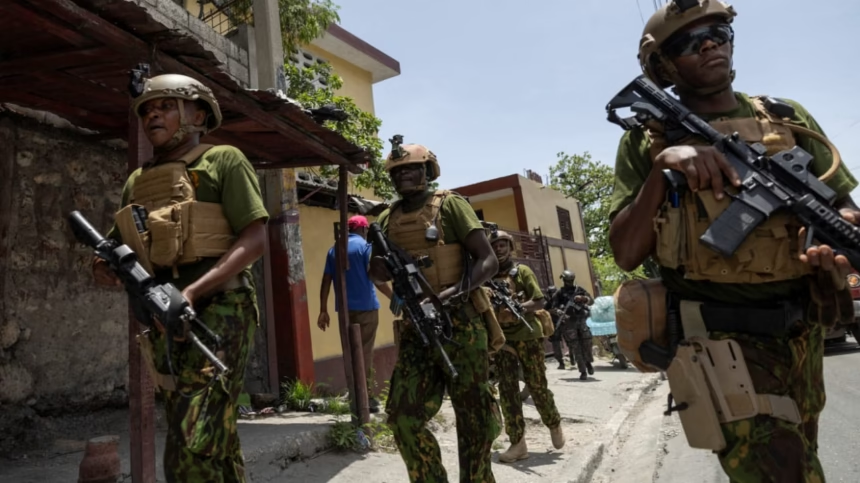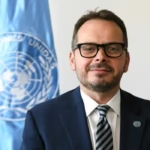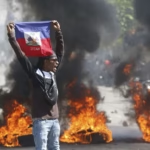United Nations, 2 July 2025 — Haiti is teetering on the brink of collapse as armed gangs tighten their grip on the capital, Port-au-Prince, and violence, displacement, and lawlessness continue to escalate across the country, the United Nations warned on Wednesday.
More than 1.3 million people have been displaced nationwide — a 24 percent increase since December 2024 — marking a new high in instability, according to the International Organization for Migration (IOM). Since January, the UN Integrated Office in Haiti (BINUH) has recorded over 4,000 deliberate killings, a 24 percent rise compared to the same period last year, according to a report released by the United Nations.
Speaking before the Security Council, UN Assistant Secretary-General Miroslav Jenča stated that gangs now control 85 to 90 percent of Port-au-Prince, effectively shutting down commercial air travel and severing the capital’s connection to the outside world. Despite the presence of a Kenya-led Multinational Security Support (MSS) Mission, the force remains significantly under-resourced, operating at less than half of its intended strength, with under 30 percent of the required equipment in place, according to the Kenyan representative at the UN.
Ghada Fathi Waly, Executive Director of the UN Office on Drugs and Crime (UNODC), highlighted the growing stranglehold of criminal groups over key trade routes, which has crippled legal commerce and deepened both food insecurity and humanitarian suffering. As state legitimacy erodes, vigilante groups and private security forces have emerged, some reportedly engaging in extrajudicial acts or colluding with gangs, she warned.
Weapons trafficking remains unchecked. According to a UN report, approximately 70 percent of firearms used by gangs originate from U.S. dealers, often smuggled via maritime routes or diverted from regional stockpiles. Despite arms embargoes renewed through UN Security Council resolutions in 2022, 2023, and 2024, high-caliber weapons continue to enter the country.
Gang violence has taken a devastating toll. The Cité Soleil massacre in December 2024 claimed at least 207 lives, primarily elderly Vodou practitioners. Additional mass killings followed in Pont-Sondé and Artibonite, where hundreds of deaths have been reported.
Women and girls face rising levels of gender-based and sexual violence, used systematically by gangs as a tool of control and terror. Displacement sites have become hotspots for exploitation, while survivors often face obstacles to reporting abuse due to fear, stigma, or lack of institutional support.
In a controversial move, Haitian authorities began deploying weaponized drones in March — reportedly modified commercial models. While these drones have killed gang members, they have also wounded at least nine civilians, raising concerns over civilian safety and a lack of operational oversight.
Deputy Secretary-General Jenča issued a stark warning: without urgent and decisive international action, the collapse of state authority in the capital could become a reality. Humanitarian agencies including UNHCR, IOM, PAHO, UNICEF, and numerous NGOs are operating emergency relief efforts, addressing needs ranging from food and healthcare to shelter and water access.
Calls for a formal UN peacekeeping mission have gained traction, but political resistance remains strong at the Security Council — particularly from China and Russia.
Haiti is expected to transition to elected leadership by 7 February 2026, but that deadline now appears increasingly unachievable due to the scale and scope of the crisis.
Without robust intervention — including security reinforcements, humanitarian assistance, governance reform, and disarmament — the country is edging ever closer to complete fragmentation.
The clock is ticking. The United Nations warns: the time to act is now.







